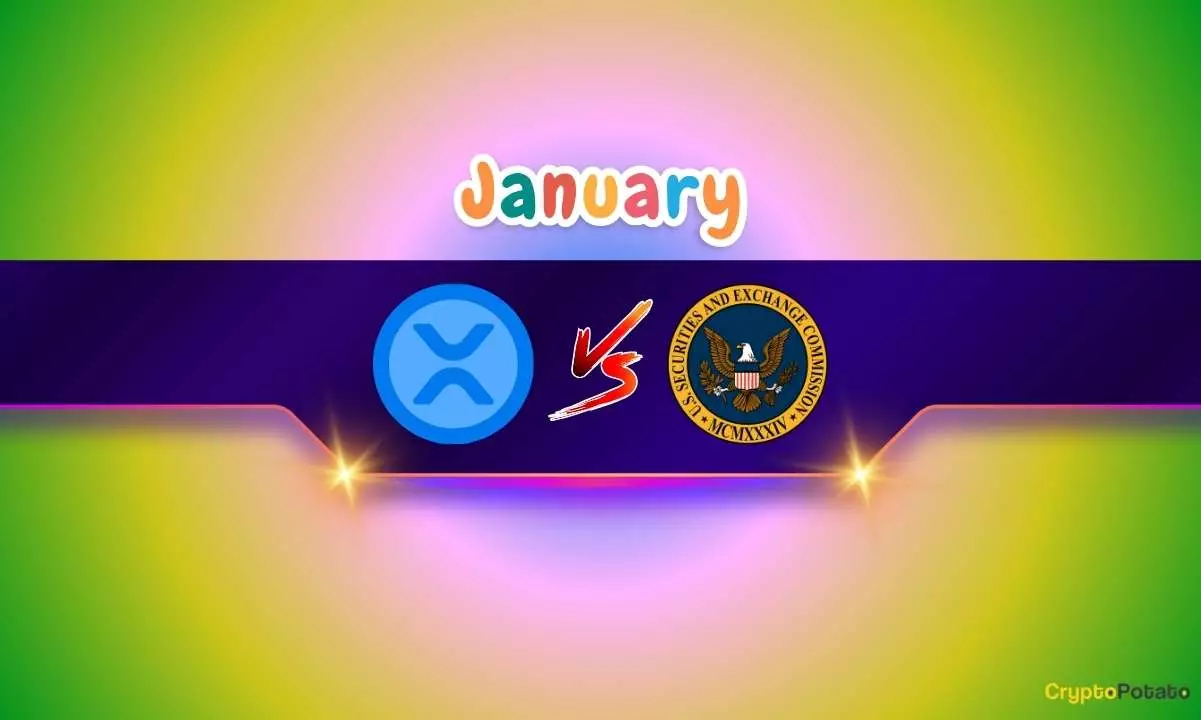The legal battle between Ripple Labs Inc. and the U.S. Securities and Exchange Commission (SEC) has been one of the most closely watched and contentious issues in the cryptocurrency space. Since the lawsuit’s inception in late 2020, the case has undergone a variety of twists and turns, revealing the fragmented nature of regulatory frameworks that govern digital assets. As of recent developments, the SEC has intensified its appeal against a pivotal 2023 ruling that favored Ripple, complicating an already intricate scenario in the realm of cryptocurrencies.
The backdrop of the SEC’s case against Ripple is essential for grasping the current regulatory landscape around cryptocurrencies. In its lawsuit, the SEC contends that Ripple’s native token, XRP, qualifies as a security under U.S. law, primarily invoking the Howey test, which assesses whether an asset is an investment contract. This classification carries significant ramifications, fundamentally shaping how digital currencies are treated under the law. Despite previous court decisions that suggested a more lenient interpretation for specific XRP sales, the SEC remains steadfast in its position, recently filing an appeal that reasserts its claim.
In ruling favorably for Ripple, Judge Torres in August 2023 established a precedent distinguishing between XRP sold directly to institutional buyers and those purchased through exchanges—a determination with the potential to carve out legal protections for retail purchasers. However, the SEC’s appeal suggests that, far from winning the war, Ripple may only have achieved a temporary victory. The crypto market’s reaction to these back-and-forth developments illustrates the uncertainty that continues to plagues investors and stakeholders alike.
While the crypto industry at large has largely rallied behind Ripple, supporting its quest for regulatory clarity, there are notable dissenters. For instance, the non-profit organization Better Markets has recently aligned itself with the SEC, arguing that all transactions involving XRP are intrinsically linked to the definition of securities. According to this group, regardless of whether investors acquired XRP directly from Ripple or through secondary markets, the expectations surrounding the token satisfy the criteria for investment contracts. This contention echoes broader concerns about how cryptocurrencies may be viewed through regulatory lenses and adds a layer of complexity to the ongoing legal confrontation.
The stance taken by Better Markets highlights a significant divide within the financial community regarding the nature of cryptocurrencies and their place in the regulatory framework. As new entities emerge to challenge the existing paradigms, the dialectic between pro-crypto advocates and regulatory bodies is only set to intensify, illustrating the multi-faceted challenges facing the industry.
A significant development in the Ripple saga has been the resignation of Gary Gensler as chairman of the SEC, replaced by Mark Uyeda, a figure perceived to be more favorable towards the burgeoning crypto landscape. This shift in leadership has led to considerable speculation about the future course of the litigation. Analysts suggest that Uyeda’s pro-crypto stance could signal a more conciliatory approach from the SEC, potentially favoring Ripple in subsequent proceedings.
Renowned attorney John Deaton has provided insight into the possible ramifications of this leadership change, articulating three potential scenarios for the Ripple case. The first scenario posits that the SEC might persist with its appeal, thus prolonging the legal tussle indefinitely. In the second, the SEC could withdraw its appeal while also imposing the penalty previously ordered, which could seemingly end the battle but at a financial cost to Ripple. The third outcome could involve a negotiated settlement, paving the way for clearer guidelines on the regulatory landscape for XRP and cryptocurrencies in general.
As the events unfold, the case against Ripple serves as a litmus test for the future of cryptocurrency regulations in the United States. With the stakes higher than ever, the implications extend beyond just Ripple and XRP; they resonate through the entire ecosystem of digital assets, potentially impacting innovation, investment, and trust in blockchain technology.
Ultimately, as the jury remains out on the future of Ripple’s operations and the broader regulatory framework surrounding cryptocurrencies, stakeholders must brace themselves for continued volatility. The case encapsulates a broader struggle between innovation and regulation, underscoring the urgent need for clarity as the digital asset landscape continues to evolve. As the SEC and Ripple embark on this next chapter, it remains to be seen how the intertwined fates of regulatory bodies and cryptocurrency will unfold in pursuit of a balanced approach to both protection and progress.


Leave a Reply